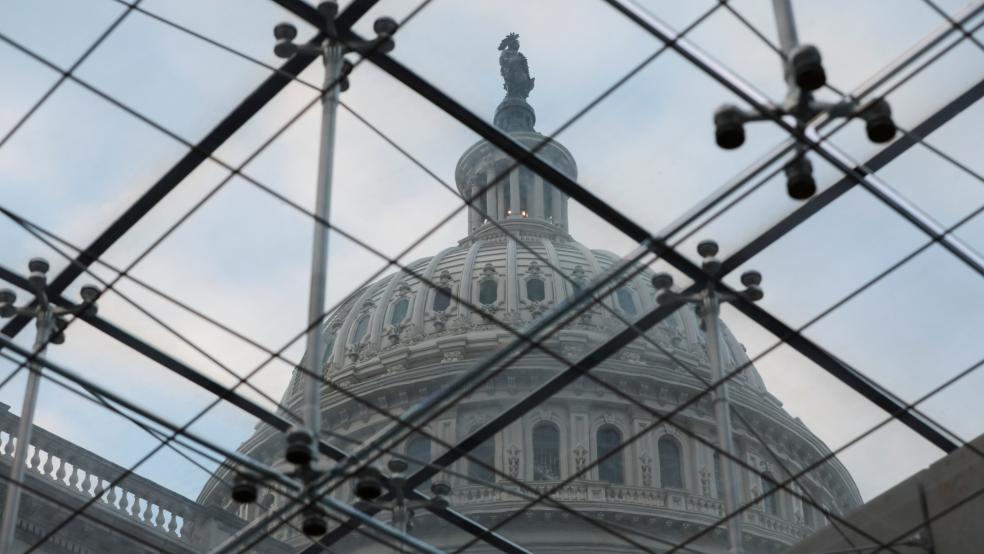The full extent of the fallout from the political earthquake that was the ouster of House Speaker Kevin McCarthy won’t be clear for some time, but the immediate aftermath has involved House Republican lawmakers doing both a whole lot and nothing at all.
By a whole lot we mean the maneuvering going on in the race to succeed McCarthy, with candidates positioning themselves for that or other leadership jobs and gauging what support they or colleagues might have in the GOP conference. Both House Majority Leader Steve Scalise of Louisiana, who announced in August that he had been diagnosed with multiple myeloma, and Rep. Jim Jordan of Ohio, the firebrand chair of the House Judiciary Committee, said Wednesday that they were running to be the next speaker. Other top Republicans who might throw their hat in the ring include Rep. Kevin Hern of Oklahoma, who leads the conservative Republican Study Committee. Rep. Tom Emmer of Minnesota, meanwhile, is backing Scalise and aiming to take over as majority leader.
It's not clear yet if any candidate — or anyone at all — can unite a bitterly divided Republican conference.
As Republicans try to sort out their leadership and work through their intraparty anger, they are slated to hold a candidate forum next Tuesday, with votes for speaker potentially following the next day. Until then, though, the House is essentially frozen — and the Senate is out next week.
The Republican dysfunction leaves several key issues yet to be resolved. Among them:
The House rules: Some moderate Republicans, incensed over the McCarthy’s ouster, are insisting that the threshold for triggering a “motion to vacate,” the process used to remove the speaker, must now be set higher than the single vote that McCarthy had allowed. Hardliners want the rule to remain as is. How this clash plays out could determine how secure the next speaker will be in the job.
Government funding and a potential shutdown: The short-term government funding bill enacted on Saturday — the proximate cause of (or excuse for) the uprising against McCarthy — set November 17 as the new deadline to avert a government shutdown. That’s just 44 days away. But House action to pass the GOP’s annual spending bills or negotiate either short-term or full-year legislation to avoid a shutdown is now delayed. And the next speaker could find it nearly impossible to reach any sort of bipartisan compromise on federal spending levels.
President Joe Biden warned Wednesday that the deadline was not far away, and he called for bipartisanship. “We cannot and should not again be faced with an 11th-hour decision or brinkmanship that threatens to shut down the government,” he said. “And we know what we have to do, and we gotta — we have to get it done in a timely fashion.”
Support for Ukraine: With House Republicans increasingly opposed to providing additional aid for Ukraine, Biden on Wednesday expressed concern that such funding was at risk given the GOP turmoil.
“It does worry me,” Biden said, “but I know there are a majority of members of the House and Senate in both parties who have said that they support funding Ukraine.”
Biden said he’d be making a major speech on the issue, explaining “why it’s critically important for the United States and our allies that we keep our commitment.” Biden has asked for an additional $24 billion in emergency funding related to the war against Russia, and the White House said this week that current funding levels would last about two more months.
Jordan told reporters Wednesday that he’s opposed to providing more money for Ukraine. “The most pressing issue on Americans’ minds is not Ukraine,” he told reporters.
The Pentagon currently has $1.6 billion available for replenishment of weapons sent to Ukraine, and the administration has the authority to send another $5.4 billion worth of weapons to Ukraine, according to Reuters.





